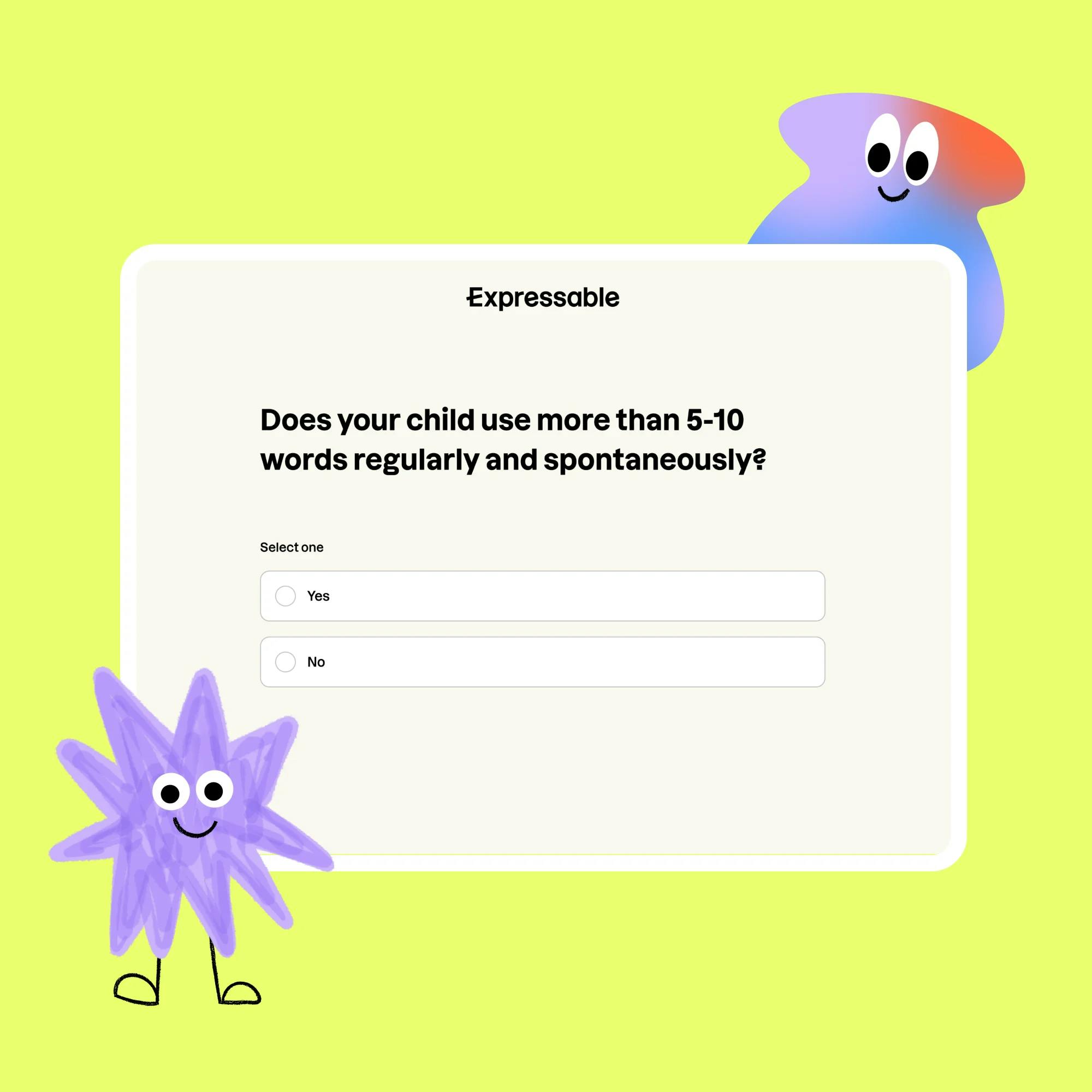When we think of childhood speech and language development, we tend to think of very young children learning to talk. And that makes sense, because a lot of growth happens in those early years. But the preteen and middle-school years come with major areas of communication growth, as well.
This article covers the milestones to look for in your child’s communication development from ages 10 to 13. We discuss how those skills relate to academics and social growth, and signs that your child may have a speech or language disorder. You’ll also learn what to do if your middle-school child is struggling with communication. It’s never too late for children to benefit from speech therapy, which can build their confidence along with their communication skills.


Articulation skills
Typically, children are able to pronounce all speech sounds correctly by the time they start kindergarten. But children ages 10 to 13 can still struggle with clear speech. Preteens might have trouble with any speech sounds. However, some of the trickier errors that can linger if not properly treated earlier in childhood occur with the /s/, /r/, and /l/ sounds.
Dacarri's story
Follow along on the journey of a preteen boy working on articulation for clearer speech. "Now I have more confidence in how I sound."
 Read Dacarri's story
Read Dacarri's storyExpressive and receptive language skills
Most preteens and middle schoolers have a variety of expressive and receptive language skills. Let’s break these down what that means:
Receptive language is a person’s ability to understand what’s spoken to them.
Expressive language is a person’s ability to make their wants, needs, and ideas known through clear communication.
Preteens can typically follow and understand questions asked in conversation and in school settings. That includes following detailed and multi-step directions. These may be directions such as “Turn in your assignment, then turn to page 30 in the book. Start reading through the first two chapters.”
Difficulty with receptive tasks like these could be related to issues with following the structure and exact meaning of sentences, or difficulty understanding certain vocabulary terms.


If a child in middle school has problems with expressive language, it may be hard for them to construct sentences that make sense. They may even misuse words if they’re struggling with vocabulary usage.
Another tricky area of expressive language development is the ability to tell a story or retell an event. Let’s say your 12-year-old is telling you about something that happened in art class. If their speech is hard to follow, and the story they’re telling stops and starts several times, this could be a sign of an expressive language delay.
As a whole, any challenges with clearly communicating thoughts and needs are a sign that speech therapy may be necessary.
Pragmatics and social skills
This is a major area where some preteens and middle-schoolers need support. Social pragmatics refers to the social aspect of language and communication. This includes commonly accepted “social rules” such as:
Maintaining eye contact during a conversation
Not standing too close to the person with whom you’re speaking
Staying on topic in the conversation
Having a two-way, rather than a one-sided, conversation
Using emotional intelligence and understanding how others are feeling
Even the ability to understand sarcasm and figurative language can be a challenge for preteens who struggle with pragmatics.


Think of social language as the “icing on the cake” of being a good communicator. If you know what to say, but don’t know how or when to say it, your message may not come across the way it’s intended!
Speech therapy for pragmatics is extremely beneficial for middle schoolers and preteens who have a hard time with social rules. Therapy can help them become the best communicators they can be. At this age, social skills are needed in a variety of activities, both in and out of school. Maybe it’s working in a small group in science class, interacting during a music or sports practice, or asking a friend if they want to hang out. Good social language skills will help your 10- to 13-year-old become more confident and successful when navigating these types of situations.


Stuttering and fluency
Typically, preteens and middle schoolers can speak smoothly, without stuttering. Stuttering refers to the disruption of the flow of speech. It can sound like a person stammering over the first sound in their sentence, or repeating a word over and over. There can even be instances of “blocks,” where a person appears frozen and has trouble making the mouth movements to continue what they’re trying to say.
It’s best to start speech therapy as soon as stuttering is observed. For some preteens, stuttering may be an issue they’ve dealt with all their life. But sometimes, stuttering can occur later in childhood or adulthood. While speech therapy will not “cure” a stutter, the person can learn techniques for smoother speech, and they’ll become more confident and empowered to speak in their own unique way.

It’s never too late to start speech therapy
If you’re reading through this and thinking your child may need help with their communication, rest assured that your preteen isn’t too old to start speech therapy! It’s never too late to get your child the speech and language support they need.
Keep in mind that speech therapy isn’t just related to how we speak. Issues with speech and language can also affect academic performance. Speech and phonological problems can impact reading or spelling. If a middle-schooler has trouble following directions, struggles to understand what’s said in class, or has a hard time expressing their thoughts verbally or in writing, school can be a lot harder to navigate.
Speech therapy isn’t just related to how we speak. Issues with speech and language can also affect academic performance.
So how do you start speech therapy for a middle-schooler? Talk with your child’s pediatrician or school about getting them a speech evaluation. You can also contact a speech therapist organization directly to schedule this testing. The evaluation will determine whether your child needs speech therapy and which areas to focus on. With the right therapy and support, you’ll likely see improvement not only in their communication, but in school as well.
How to talk with your preteen about speech therapy
As a parent, you probably know it isn’t always easy to get your 12-year-old to do what you want them to do. But the more your child “buys in” to speech therapy, the more successful sessions will be.
Starting speech therapy might feel overwhelming or embarrassing to your child. There may be other ways they want to spend their free time. Try to focus on what’s in it for them–what would they like to be able to do better?
Your preteen’s speech therapist will likely talk with them about this, too. Speech therapists know that in order to make progress, kids in this age group need to be motivated. They’ll likely ask your child about specific things they’d like to work on. That might be learning how to navigate conversations with peers, or speaking more clearly, smoothly, or confidently in class. The key is to find what’s important to them, then encourage them to work toward achieving that goal.


Helping your middle-schooler build their confidence
Jamie Gentry, M.S., CCC-SLP, a speech therapist with Expressable, sees learning self-advocacy skills as a vital part of speech therapy for middle-schoolers. “Preteens are becoming more and more independent at this age. Letting others know what they need is vital–and empowering for them!”
Self-advocacy becomes more important as kids get older. They may have to ask for what they need in the classroom–such as written directions or more time on assignments. Or they may need to ask someone to repeat themselves, or tell a friend that they need a little more time to get their words out. Whatever the topic, learning to speak up for themselves and advocate for what they need is huge. A speech therapist can help your child become more skilled and comfortable with this.
Speech therapists help preteens grow their confidence and self-advocacy skills so they can speak up for what they need.
No matter the reason for therapy, many speech therapists focus on helping preteens grow their confidence in communicating with others. Kelsey Stauffer, M.S., CCC-SLP, a speech therapist with Expressable, says this can be addressed by targeting “confidence in what they’re saying, how they’re saying it, or overall confidence in themselves. In therapy, the client and therapist will often talk about their strengths and understanding their self-worth in order to grow their confidence.”
When a middle-schooler is confident in themselves, it’s natural for their speech to improve. Confidence can help them learn new skills and be more willing to communicate with others.
If you’re concerned about communication in your 10- to 13-year-old, reach out to a speech therapist to discuss what you’re noticing and schedule an evaluation. The time and energy you put into your child’s development is never wasted, no matter how old they are!
How Expressable Can Help
Concerned your child isn't reaching age-expected milestones? Looking for communication support from a professional? Expressable is a national online speech therapy practice serving children and adults. We treat all major areas of communication and feeding, offer flexible hours including evenings and weekends, and accept most major health insurance plans. We’re proud to have earned more than 3,000 5-star reviews from our clients (4.9/5 average).
Our therapy model is centered on parent and caregiver involvement. Research proves that empowering caregivers to participate in their loved one’s therapy leads to better outcomes. That’s why we combine live, 1-on-1 speech therapy with personalized education and home practice activities for faster progress.
Communication is more than words. It’s how we share how we feel and show who we are. We’re here to help you or your child do just that.

 Abby Barnes, M.S., CCC-SLP
Abby Barnes, M.S., CCC-SLP












